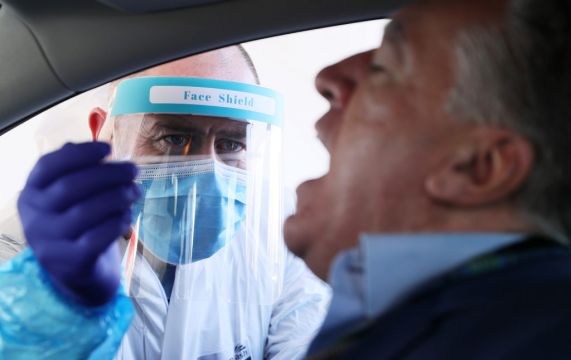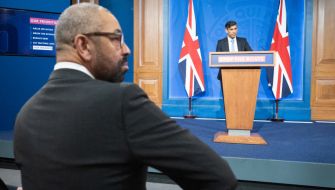The Department of Health has confirmed guidance for PCR testing and self-isolation will be updated due to the pressure being placed on the testing system amid record-breaking daily case numbers.
Following the confirmation of 20,554 cases of the virus on Thursday evening, which chief medical officer Dr Tony Holohan said may be an underestimate due to many people being unable to find a test appointment, the department has moved to implement the following changes from Monday, January 3rd...
Testing
Due to the demand for PCR tests, the criteria for those seeking a test appointment has changed.
People aged between four and 39 who have symptoms should self-isolate and take regular antigen tests which they will receive in the post after contacting the HSE. If an antigen test returns a positive result then the person should book a PCR test to confirm the result. If the antigen tests return negative/not detected results, they should continue to isolate for a further 48 hours after their symptoms subside.
Healthcare workers, people over the age of 40, or children aged three and under should book a PCR test as soon as they display symptoms.
Those with underlying conditions at a higher risk of severe disease are being instructed to contact their GP if they start showing symptoms.
Isolation
The rules for the length of time which must be spent self-isolating after testing positive for the virus will now depend on the person's vaccination/booster status and whether they are displaying symptoms.
For those aged 13 or over who have received the booster jab more than seven days ago, they must isolate for seven days from the point when they first displayed symptoms. For those with no symptoms, they must isolate for seven days from the point they received the positive test. Anyone ending self-isolation on day seven should only do so if they have been symptom-free for the final two days of their isolation period.
However, people exiting isolation after seven days are being instructed to:
- Limit close contacts outside their household
- Wear a face mask in crowded or enclosed places
- Take an antigen test before attending a crowded or enclosed place
- Avoid contact with anyone who is at high risk of developing severe disease
- Work from home unless it is essential to attend in person
- Follow all other public health measures (hand-washing, social distancing, etc.)
Those who have not received their booster jab, or who have not recently recovered from the virus following a full initial course of vaccination (two shots of Pfizer/Moderna/AstraZeneca, one shot of Janssen) will continue to be required to isolate for 10 days.







